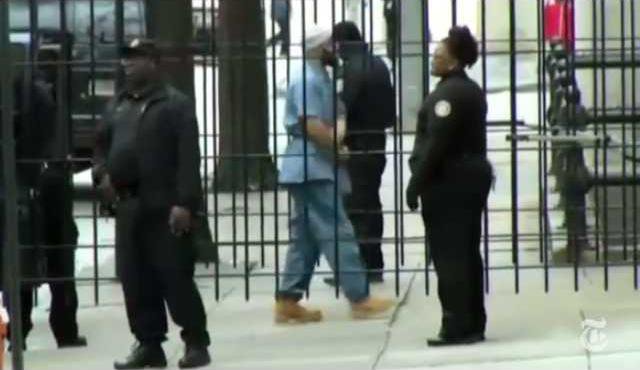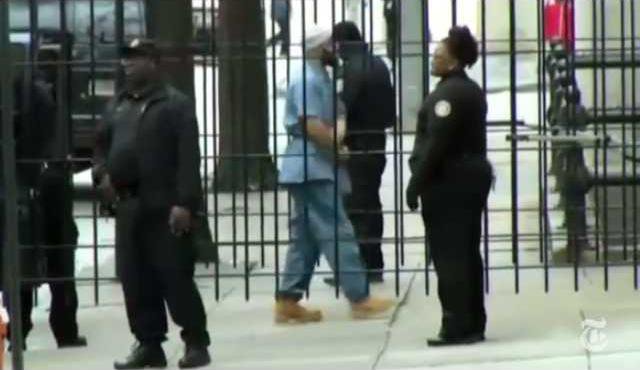Adnan Syed, the 35-year-old man convicted of his high school girlfriend's murder in 2000, has been granted a new trial, partially because of the exposure his case received as the subject of the popular first season of the podcast "Serial."
Syed was convicted by a Baltimore jury of killing his ex-girlfriend at the time, 18-year-old Hae Min Lee, whose dead body was discovered in a park in 1999.
How the case reached this point, more than a year after "Serial" wrapped and moved on to a less lauded second season detailing the ordeal of Army Sgt. Bowe Bergdahl, is the subject of some controversy.
The New York Times quoted Syed's attorney, Justin Brown, as saying that he didn't think the retrial would have gotten off the ground without "Serial."
Many fans of "Serial" took to Twitter after the announcement to express their joy at the judge's decision, including Rabia Chaudry, a friend of Syed's who first compelled "Serial" host Sarah Koenig to look into the case.
But, perhaps tellingly, Chaudry didn't include Koenig or "Serial" in her tweets thanking the judge and Brown for their work. Chaudry teamed with Brown after she launched her own podcast, "Undisclosed," to pick up where "Serial" left off on Syed's case.
Chaudry and the lawyers she hired to consult on her podcast have all expressed frustration with Koenig and what she chose to include and leave out in the course of reporting Syed's case, including what Chaudry considered lenient interpretation of Syed's first trial attorney, Cristina Gutierrez, now deceased.
In the judge's order, he outlined Gutierrez' performance as a primary reason for the retrial. Chaudry isn't alone in her criticism of Koenig and "Serial." Journalists at investigative website The Intercept published a long interview with Jay Wilds, a prime witness against Syed in the first trial and a subject who was uncooperative and suspicious of Koenig and the podcast.
But most unhappy and suspicious of the future of the case is Lee's surviving family, who released a statement in the wake of the ruling.
"We do not speak as often or as loudly as those who support Adnan Syed, but we care just as much about this case. We continue to grieve," the statement read in The Baltimore Sun. "We continue to believe justice was done when Mr. Syed was convicted of killing Hae."
Syed was convicted by a Baltimore jury of killing his ex-girlfriend at the time, 18-year-old Hae Min Lee, whose dead body was discovered in a park in 1999.
How the case reached this point, more than a year after "Serial" wrapped and moved on to a less lauded second season detailing the ordeal of Army Sgt. Bowe Bergdahl, is the subject of some controversy.
The New York Times quoted Syed's attorney, Justin Brown, as saying that he didn't think the retrial would have gotten off the ground without "Serial."
Many fans of "Serial" took to Twitter after the announcement to express their joy at the judge's decision, including Rabia Chaudry, a friend of Syed's who first compelled "Serial" host Sarah Koenig to look into the case.
But, perhaps tellingly, Chaudry didn't include Koenig or "Serial" in her tweets thanking the judge and Brown for their work. Chaudry teamed with Brown after she launched her own podcast, "Undisclosed," to pick up where "Serial" left off on Syed's case.
Chaudry and the lawyers she hired to consult on her podcast have all expressed frustration with Koenig and what she chose to include and leave out in the course of reporting Syed's case, including what Chaudry considered lenient interpretation of Syed's first trial attorney, Cristina Gutierrez, now deceased.
In the judge's order, he outlined Gutierrez' performance as a primary reason for the retrial. Chaudry isn't alone in her criticism of Koenig and "Serial." Journalists at investigative website The Intercept published a long interview with Jay Wilds, a prime witness against Syed in the first trial and a subject who was uncooperative and suspicious of Koenig and the podcast.
But most unhappy and suspicious of the future of the case is Lee's surviving family, who released a statement in the wake of the ruling.
"We do not speak as often or as loudly as those who support Adnan Syed, but we care just as much about this case. We continue to grieve," the statement read in The Baltimore Sun. "We continue to believe justice was done when Mr. Syed was convicted of killing Hae."








